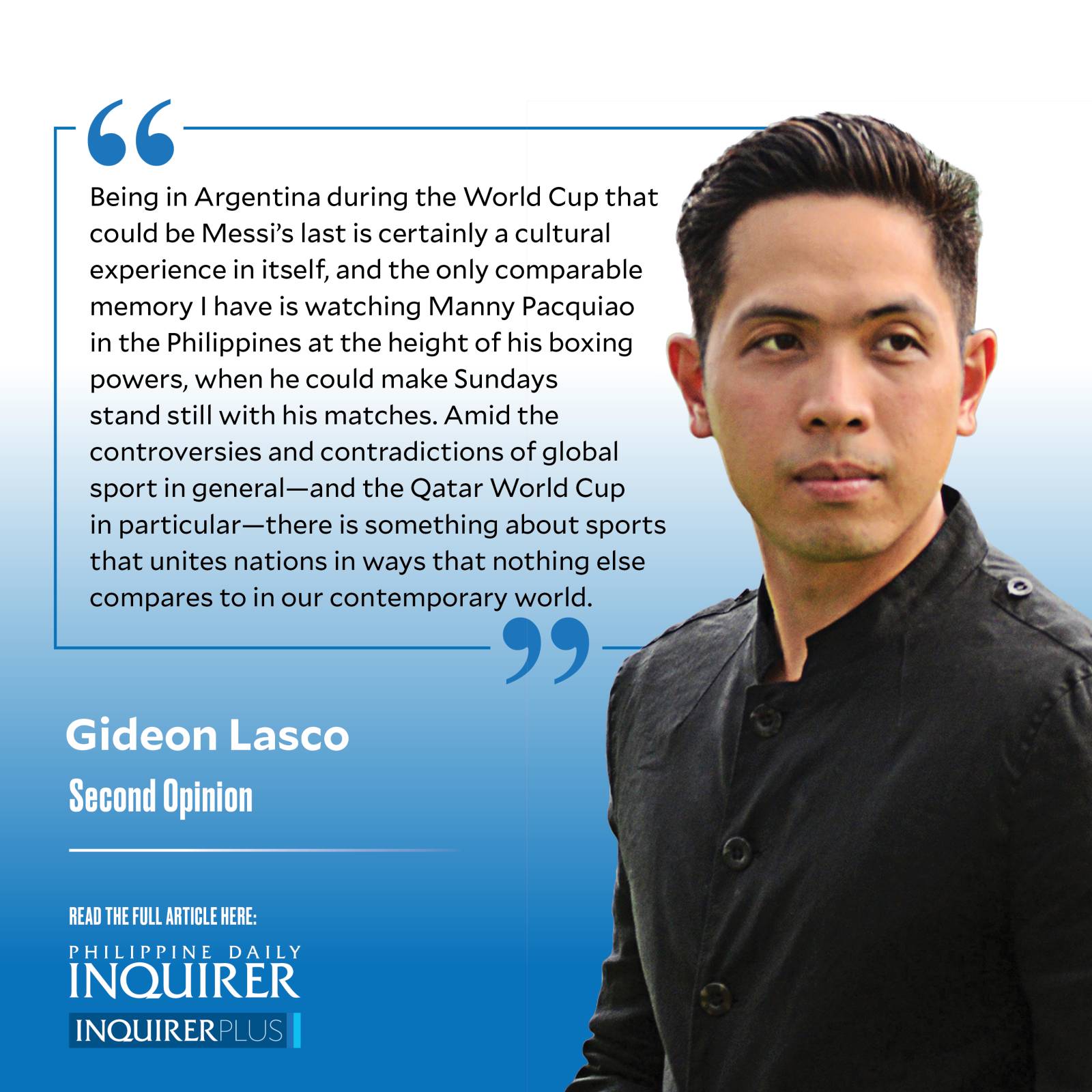
Buenos Aires, Argentina—Within hours of crossing the land border from Brazil to Argentina, I already lost track of the number of Lionel Messi shirts I have seen.
In the capital, the signs of World Cup fever are everywhere. In Palermo, restaurants have large TV screens that show the football action as tourists, digital nomads, and locals alike sip Malbecs and slice thick cuts of famed Argentinian steak. In various parts of the city, entire squares have been converted into public viewing areas, but in any case, it is impossible to miss the football action. Even while I was aboard the plane to Patagonia, in the country’s far south, the captain animatedly announced that the air traffic controller had sent an important message: “Gol de Messi! Vamos, Argentina!”
That game—against Saudi Arabia—ended up in a shock 1-2 defeat, and exiting the airport was like marching on a funeral parade. Thankfully, the Albiceleste managed to win the next two matches, and with Argentina advancing to the octavos, the craze and the festivities continue.
“Sorry, Christmas, but this season is for football,” as one advertisement read.
Being in Argentina during the World Cup that could be Messi’s last is certainly a cultural experience in itself, and the only comparable memory I have is watching Manny Pacquiao in the Philippines at the height of his boxing powers, when he could make Sundays stand still with his matches. Amid the controversies and contradictions of global sport in general—and the Qatar World Cup in particular—there is something about sports that unites nations in ways that nothing else compares to in our contemporary world. The rivalry between Boca Juniors and River Plate can divide the porteños too—at times violently—but when it comes to the Mundíal, everyone rallies behind the same blue and white flag.
Of course, there’s far more to Argentina than football: a country that is as culturally as it is geographically diverse. Like Pope Francis, a majority of Argentines have some Italian descent, manifesting in the language, cuisine (pizzas, pastas, creamy helados), and perhaps in the sense of “European-ness” that continues to figure in discourse around national identity. The country itself is immense—the world’s eighth largest—and encompasses Andean highlands, pampas, and even subpolar forests closer to Antarctica than to Buenos Aires.
As always, I opted to head to the mountains, and perhaps my most memorable image of the country would not be the passionate tango performances in Buenos Aires nor the powerful cascades of Iguazu Falls, but the snow-capped peaks of Patagonia with Andean condors hovering above.
As for politics, looming large in popular imagination is Eva Perón—Evita—who came from humble origins to become First Lady and eventual “spiritual figure of the nation.” Although today she is perhaps more of a fascination for tourists than for locals who are accustomed to her legacy, her resonance endures; the anthropologist Julie Taylor once suggested her appeal lay in her embodiment of various “myths of a woman” in Argentinian culture.
Succeeding politicians have tried to invoke the image of Evita and, more so, the ideology of peronismo—social justice, economic nationalism, political nonalignment. These include former president and current Vice President Cristina Kirchner who once said that she is “a Peronist, not a feminist,” as well as incumbent President Alberto Fernández, who told Xi Jinping that “If you were Argentine, you would be Peronist.”
The economic situation, however, is proving to be intractable, some say as a direct result of Peronist (and, they add, populist) economic policies; others say because of neoliberal policies in the 1970s, 1990s, and 2010s, as well as the broader forces of global capitalism. The annual inflation rate is 88 percent, and the street value of the dollar has been completely untethered from the official exchange rate. As in Turkey and Venezuela, some are turning to cryptocurrency. While the Haussmannian architecture of the “Paris of the South” evokes a past when the country was wealthier than France, 40 percent of Argentines live in poverty today: a figure that can become even higher if further inflation and debt defaults won’t be averted.
Amid all these uncertainties, the World Cup is a welcome respite, the way that, in 1986, Diego Maradona’s heroics were a welcome triumph after the loss in the undeclared Guerra de las Malvinas (Falklands War). Victory in the global stage has been elusive since; after getting so close in 2014—reaching the final only to lose in the hands of Germany—they look to their talisman with the number 10 jersey to lift the country anew. And today—I write this after their 2-0 win over Poland—that hope is very much alive.
—————-
glasco@inquirer.com.ph